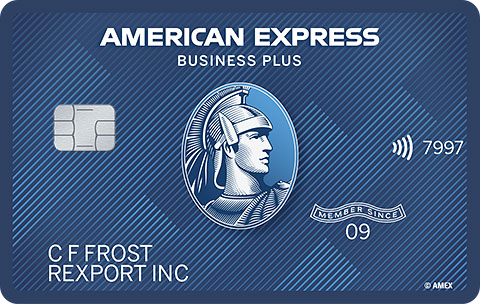It may come as a surprise, but you can get a business credit card as a sole proprietor. In reality, sole proprietorship business credit cards are the same as other business credit cards — you simply need to find one you qualify for. If you don’t want to use your personal credit card for business purchases, consider a small business credit card.
In this article, we’ll walk you through the benefits of a business credit card for sole proprietors, how to apply, and how to improve your chances of approval. We also offer our favorite picks for sole proprietorship business credit cards and how to choose the best one for you.
Can a sole proprietor get a business credit card?
A sole proprietorship consists of any activity that makes income. If you sell art on Etsy, tutor students, act as a freelance designer, teach a dance class, or manage other businesses’ social media accounts, you’re a sole proprietor.
As a sole proprietor, you are your small business. And while that structure might work for the product or service that you’re trying to sell, it can make it difficult to get approved for some forms of business financing, including loans and lines of credit.
A business credit card, on the other hand, doesn’t require your business to have a credit history. Instead, card issuers typically base their approval on your personal credit history, making it easy enough to get a card if you have good credit.
Keep in mind, however, that the lack of separation between you and the small business means all the debt you put on a business credit card is your responsibility. So use a business credit card wisely.
100+ business credit cards in one click
Business credit cards can help you when your business needs access to cash right away. Browse your top business credit card options and apply in minutes.
How to apply for a business credit card as a sole proprietor
When you open a sole proprietorship business credit card, you’ll need the following:
- A personal credit score. Business credit cards use your personal credit history to decide if you qualify. What qualifies as fair or excellent credit depends on the card’s requirements.
- A business name. Many sole proprietors operate their business under their own name or register under a fictitious name.
- Contact info for your business: Your home address and phone number can function as the business contact if needed.
- Federal Tax ID Numbers: As a sole proprietor, you’ll provide your Social Security number and the business’s tax identification number (TIN), if you have one.
- Annual revenue: If you have a new business that’s been operating for less than one year, put $0 as your revenue.
There are many ways you can increase your chances of getting approved. First, check your personal credit report. Your score will factor into your credit limit and your APR. Depending on the bureau, a good credit score can vary, but FICO considers anything between 670 and 739 good and a score between 580 and 669 fair.
Additionally, you’ll want to apply for the right card. Starting with banks you already have an account with can increase your odds of approval. You can also look at credit card issuers that accept card applications within your credit score range.
If you can’t seem to get approved, you can try waiting until you have been in business for a year or longer and can prove you have revenue. This makes you less of a risky cardholder to lenders. Also, if needed, you can offer a personal guarantee, like a cash deposit.
As you’re comparing various cards, it’s important to consider what you want in a new card, including the rewards program, APR, and other features. To help you narrow down your selection, here are our favorite credit cards for sole proprietors.
Best for 0% APR promotion
The Blue Business® Plus Credit Card from American Express
Rewards are great for ongoing operating expenses. But if you need to finance a large upcoming expense or need some time to get your cash flow in order, The Blue Business® Plus Credit Card from American Express may be a better choice.
The card offers an introductory APR promotion of 0% on purchases for 12 months from date of account opening. After that, your APR will be 17.49% - 27.49% Variable, depending on your creditworthiness.
Depending on how much you put on the card during the promotional period, you could save hundreds, if not thousands, of dollars.
Earn 2X points on everyday business purchases such as office supplies or client dinners. 2X applies to the first $50,000 in purchases per year, 1 point per dollar thereafter. Terms and limitations apply.But with a $0 annual fee and the potential to get a lot of value, the card is a solid choice.
The Blue Business® Plus Credit Card from American Express
A great business card for flexible spending and travel rewards points.
Pros
- Competitive intro APR offer and rewards rate
- No annual fee
- For a limited time, earn Membership Rewards® points on initial spending.
Cons
- Foreign transaction fee.
Intro APR
Purchase APR
Annual Fee
Welcome Offer
Best for fair credit
Secured Self Visa ® Credit Card: The new way to build credit
If you have less-than-perfect personal credit, a small business credit card can help you build a credit history. A fair FICO credit score is anything from 580 to 669 (but different credit scores use other ranges).
One sole proprietorship business credit card that could work for anyone with fair credit is the Secured Self Visa ® Credit Card: The new way to build credit. It doesn't have rewards, but it can help build credit. Plus, it has a $0 annual fee for the first year only, $25 annual fee thereafter. Variable APR of 28.24%. Offer valid for new customers only..
Because it’s a credit builder account, the interest rate is a bit higher than others at 28.24% Variable Rates.
Intro APR
Purchase APR
Annual Fee
Welcome Offer
Best for bad credit
Wells Fargo Business Secured Credit Card
If your credit score is below 580 and you’re not relatively new to credit, you may have a tough time getting approved for some cards. And while a secured business credit card is likely your best bet when you’re looking at business credit cards for bad credit, you don’t have to worry about getting a terrible deal.
The Wells Fargo Business Secured Credit Card allows business owners to choose between 1.5% cash back on all purchases or 1 point per dollar on all purchases, plus 1,000 bonus points for every month where you spend at least $1,000.
To get the card, you’ll need to make a security deposit equal to your credit limit, which can range from $500 to $25,000. The annual fee is $25 per card, and you can get up to 10 employee cards. If it’s just you, though, $25 isn’t too expensive.
As you use the card responsibly over time, the card issuer will periodically review your account to determine if and when it can upgrade you to an unsecured card. Once that happens, you’ll get your deposit back.
*All information about the Wells Fargo Business Secured Credit Card credit card has been collected independently by Nav. This card is not currently available through Nav. To see what business credit cards are available, please visit the Nav Credit Card Marketplace.
Choosing the best business credit card for your sole proprietorship
First, keep in mind that you need an employer identification number (EIN) before a business credit card can help you build business credit as a sole proprietor. While this isn’t required for sole proprietors, it’s a good idea to have one — if only to build up your business credit. And make sure that the business credit cards you choose will help you boost your business credit score because not all do.
There’s no single best credit card out there for everyone, so it’s important for you to consider your business expenses and general preferences when choosing a card. While we consider the Chase Ink Business Unlimited® as the best business credit card if you have good credit, for instance, it may not be the right fit if you don’t spend any money in the card’s rewards categories.
Take the time to review where you spend the most money, and try to find a credit card that will give you the most bang for your buck.
At the same time, also consider other features, such as a 0% APR promotion, no annual fee, and travel protections. As you think about what your business needs, you’ll have a better idea of which card will fit the bill.
Access better funding options with a solution you can’t get anywhere else
Reduce the pain in financing with streamlined applications, instant offers and approval rates that are 3.5X higher than industry averages.
Build your foundation with Nav Prime
Options for new businesses are often limited. The first years focus on building your profile and progressing.

Tiffany Verbeck
Digital Marketing Copywriter, Nav
Tiffany Verbeck is a Digital Marketing Copywriter for Nav. She uses the skills she learned from her master’s degree in writing to provide guidance to small businesses trying to navigate the ins-and-outs of financing. Previously, she ran a writing business for three years, and her work has appeared on sites like Business Insider, VaroWorth, and Mission Lane.



